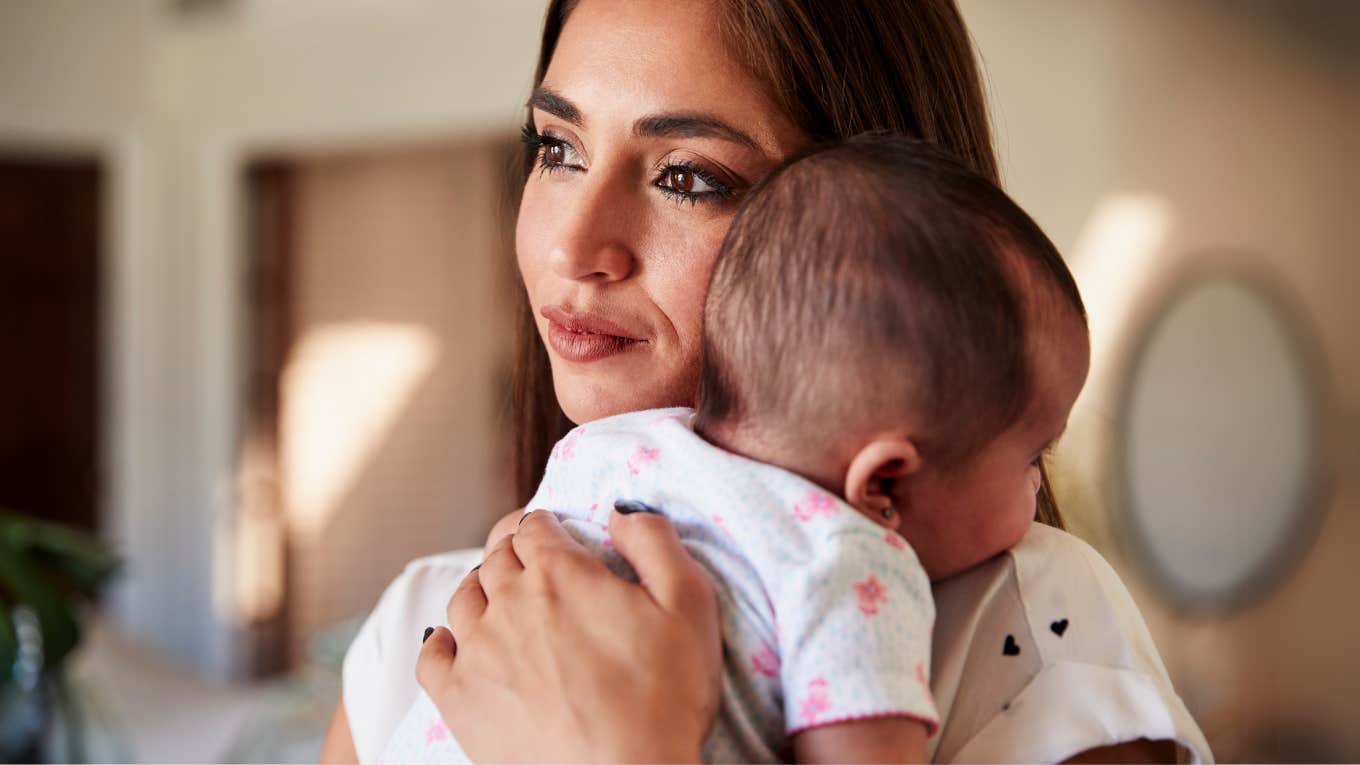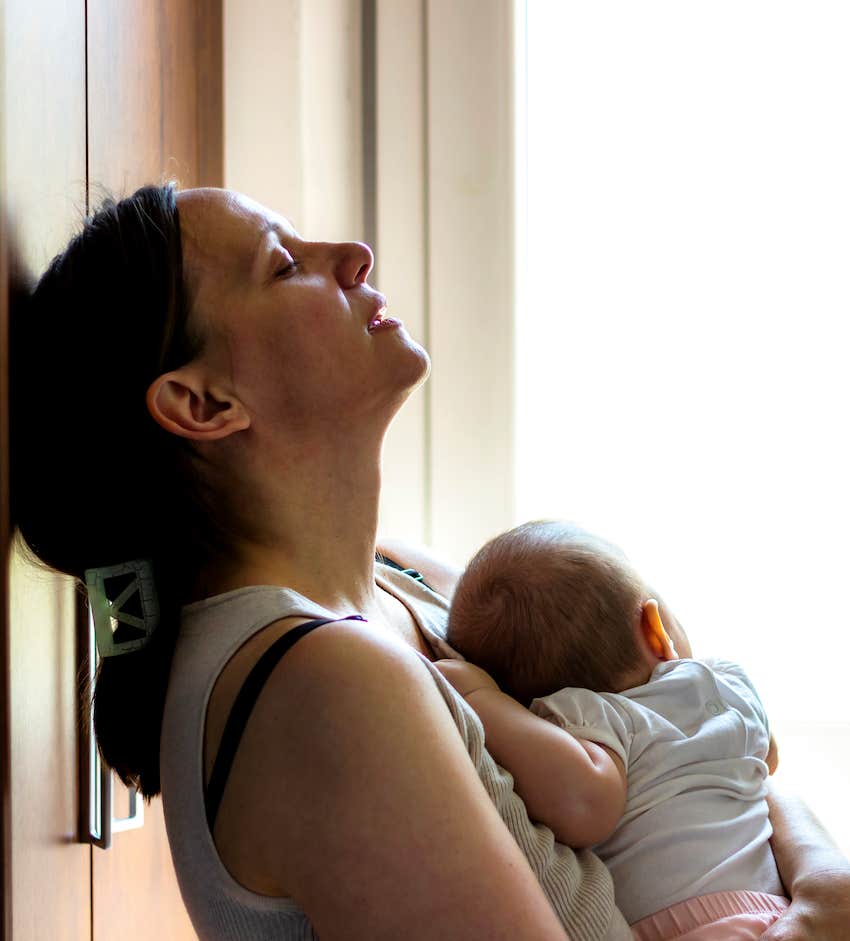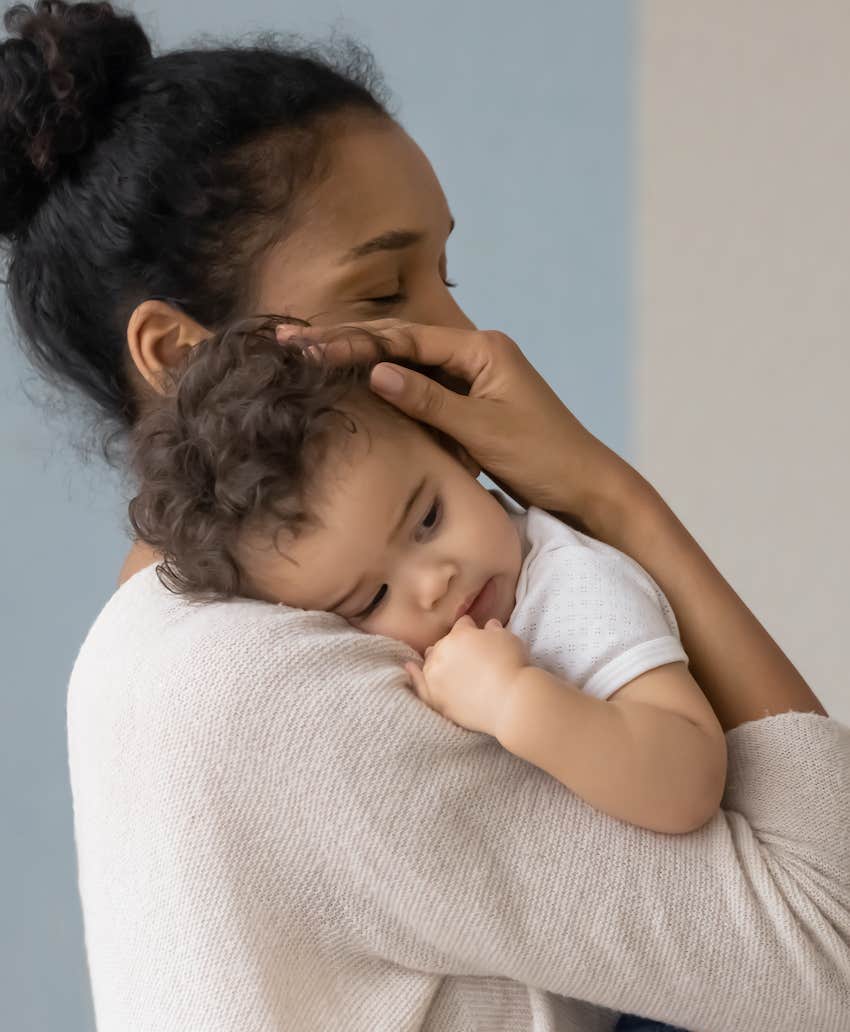My Baby Was Sick And Medical Professionals Didn't Care — 'They Wrote Me Off As As An Overbearing Mom'
When my baby was deathly sick, medical professionals didn't seem to care.
 Monkey Business Images | Canva
Monkey Business Images | Canva Editor's Note: This is a part of YourTango's Opinion section where individual authors can provide varying perspectives for wide-ranging political, social, and personal commentary on issues.
"If you remove her from this hospital, I will call the police," the doctor yelled at me in the hallway of the hospital's intensive care unit.
"Go ahead!" I yelled back, both frightened by not only what I was saying but also by the tone I wasn't accustomed to using. "Call the police," I yelled again. "Tell them that a murder is about to occur!"
A single tear rolled down my cheek and splashed onto the floor. Shaking, I took a deep breath and glanced over my shoulder at the baby in the room behind me.
Lying in a crib and buried beneath a mess of tubes and wires lay one of my kids — my daughter, even 6 months old — and she appeared to be dying.
My baby was sick and medical professionals didn't seem to care.
The first time my baby was admitted to the hospital was when she was 11 days old. She was running a fever and screaming with such intensity that you couldn't help but feel her pain but several days later she was released without any real answers and no diagnosis. The doctors assumed it was just a virus and a case of colic but my instincts told me they were wrong.
When I brought her in yet again a few months later, I knew something wrong. I had found her in her bed, not breathing, unresponsive, and the most terrifying shade of purple I'd ever seen.
I yanked her out of her bed so fast that to this day I can't tell you if the motion alone caused her to start breathing or if the whiplash I gave her jolted her heart back to life. All I know is that when I laid her on the floor to start CPR, she let out a whimper at first, and eventually a hearty cry.
As I drove her to the ER, I didn't know what lay ahead, but what I did know was that she needed help. Unfortunately, help is not what I got.
 Jelena Stanojkovic via Shutterstock
Jelena Stanojkovic via Shutterstock
What I got was a staff of medical professionals who wrote me off, saying I was an overbearing mother.
But I knew what I had seen — and what it looked like was my child was near death. There wasn't a chance I ever wanted to see that shade of purple on the face and body of my child again, so I fought back.
Quietly at first — asking for tests to be run and symptoms to be looked into further — and when that didn't work, I fought louder. And then suddenly there I was, arguing in the hallway of the intensive care unit with a doctor who had just put a tube in my daughter's throat that would measure the acid in her stomach, a tube I was certain was not inserted correctly because she appeared to be choking.
"Ms. Strong," he said to me sternly, "She is just trying to get used to the tube. She is not choking; she is fine. A nurse can help you pick her up and maybe if you try and nurse her, she will be fine."
She wasn't fine. Something was not right and I had had it with being brushed off. I demanded a hospital transfer and when the doctor refused to call for one, I threatened to leave with my daughter.
If she wasn't going to be helped there, she was going to be helped somewhere. Finally, when I refused to back down, the doctor agreed to "take one last look at the tube placement."
The tube was put in incorrectly. It had curled up in her trachea and was pointing upward toward her mouth. She was choking. As the doctor tried to reposition the tube, a steady stream of blood began to run out of her mouth.
Despite my protests, I was forced to leave the room while they fixed the tube that was inserted incorrectly. During that same hospital stay, I noticed that one of her IVs was running alarmingly fast. A bag a nurse had informed me was supposed to be infused over 24 hours and was a third of the way empty in 30 minutes.
After paging the nurse several times and walking to the nurse's station twice, I finally crimped the IV line myself and pulled the emergency cord on the wall.
I later found out that if my daughter had indeed received the entire infusion at the rate it had been going, her kidneys would have shut down, her lungs would have flooded, and eventually, her heart could have stopped.
 fizkes via Shutterstock
fizkes via Shutterstock
All because of a mistake. As I sat in the lounge crying, head in my hands, another woman came over and put her arm around me. She told me it would be okay and my child was lucky to have a mom who cared so much.
I did care — but I felt like I cared more than the people who were being paid to care about her did.
Today, my daughter is six years old. After my continued and unrelenting refusal to chalk her symptoms up to "a coincidence," she was eventually diagnosed with an extremely rare chromosomal disorder, one that could have killed her if not caught early enough.
My daughter has made amazing strides but I'm fairly certain that if I had left the care of my child up to the doctors alone, I would no longer have a child to care for.
People, parents especially, tend to blindly follow what a doctor says. We look to professionals for answers to questions we don't understand and trust them to keep our children healthy.
But the problem is that under the lab coat and the fancy degree, doctors are simply just people.
They are people who, like everyone else in the world, don't always know everything. They have good days and bad. Some care, others don't.
The fact is, too many people trust a doctor when they should have trusted themselves. The Institute of Medicine reported that 210,000 people die from medical mistakes each year and the Diagnosis Journal stated that 12 million Americans are misdiagnosed.
My daughter could have been one of them. I'm not a doctor and I never will be — but what I am is the best advocate my child has.
Eden Strong is a regular contributor to a variety of digital outlets, including Lifetime Moms, XOJane, Scary Mommy, Catster, and Dogster.
